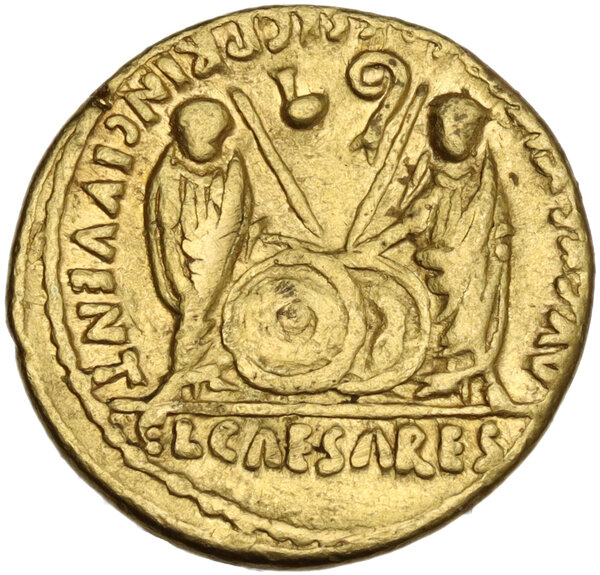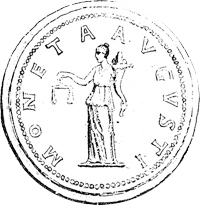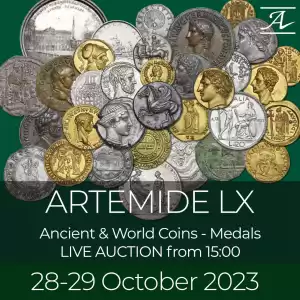

Augustus (27 BC - 14 AD). AV Aureus. Lugdunum mint, 2 BC - 12 AD. Obv. CAESAR AVGVSTVS DIVI F PATER PATRIAE. Laureate head right. Rev. C L CAESARES (in exergue) AVGVSTI F COS DESIG PRINC IVVENT. Gaius and Lucius Caesar, on left and right, standing facing, each togate and resting a hand on one of two shields set on ground between them; behind the shields, two spears; above, on left, simpulum right, and on right, lituus left. RIC I (2nd ed.) 206; C. 42; Calicó 176. 7.64 g. 19.00 mm. R. Faint scratches on reverse. VF. On the 21st of February 4 AD, Gaius Caesar, the eldest son of Augustus’ daughter Julia, died in Anatolia aged twenty-three. Despite his vast inexperience, the emperor had called upon his young grandson when a revolt had been staged in Armenia, giving him proconsular powers and trusted advisors to combat the unrest. Gaius had invaded Armenia in 2 CE and come away injured, eventually succumbing to the sickness it caused him.
Gaius’ younger brother, Lucius, had been similarly unfortunate. In mid-2 CE, aged only eighteen, he had fallen sick in Gaul and died shortly after. The deaths of both he and his elder brother left Augustus in a difficult position: he was now heirless, with no sons of his own. Gaius and Lucius—sons of not only Augustus’ daughter Julia, but his trusted general and childhood friend, Marcus Agrippa—had been adopted by Augustus as his own son in 17 BC.
Gaius’ younger brother, Lucius, had been similarly unfortunate. In mid-2 CE, aged only eighteen, he had fallen sick in Gaul and died shortly after. The deaths of both he and his elder brother left Augustus in a difficult position: he was now heirless, with no sons of his own. Gaius and Lucius—sons of not only Augustus’ daughter Julia, but his trusted general and childhood friend, Marcus Agrippa—had been adopted by Augustus as his own son in 17 BC.


